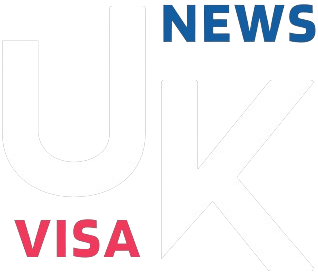By Anna Bregstein – Pupil Immigration Barrister
After months of what’s often called parliamentary ‘ping pong’, the third modification to the Security of Rwanda (Asylum and Immigration) Invoice (hereafter ‘the Bill’) was rejected by the Home of Commons, resolving the impasse between the Homes. The most recent amendments would have required the UK to arrange an impartial monitoring committee to report back to Parliament earlier than Rwanda may very well be declared ‘safe’, and to grant an exemption to refugees who had been working with the UK navy abroad, comparable to Afghan interpreters. Each amendments had been rejected by MPs within the Home of Commons. As such, after many months of parliamentary impasse, this paved the best way for the Invoice to turn out to be regulation and it was granted royal assent on 25 April 2024. Thus, the Security of Rwanda (Asylum and Immigration) Act 2024 entered the statute books.
This submit explores the background and motivation behind the Act, its significance to UK immigration regulation and worldwide regulation obligations, the response to this controversial piece of laws, and what we will anticipate from it.
Why Was the Invoice Proposed within the First Place?
The Invoice was proposed within the aftermath of the unequivocal discovering by the UK Supreme Courtroom in R (AAA & others) v Secretary of State for the Home Department [2023] UKSC 42, on 15 November 2023 that Rwanda was not at the moment a secure nation to take away asylum-seekers to, as a result of danger of ‘refoulement’.
‘Non-refoulement’ is a safety mechanism beneath worldwide regulation prohibiting States from transferring or eradicating people from their jurisdiction or efficient management when there are substantial grounds for believing that the particular person could be liable to irreparable hurt upon return to a rustic through which they’d be liable to persecution, torture, ill-treatment or different critical human rights violations. It’s a precept which seems, amongst different authorized devices, within the 1951 Refugee Conference, and the European Conference on Human Rights (‘ECHR’) beneath the jurisprudence relating notably to Articles 2 (Proper to life) and three (Prohibition of torture). The ECHR is given impact within the UK by way of the Human Rights Act 1998 (‘HRA’), which integrated it into home regulation to allow people to guard their rights in home courts and compel the creation, interpretation and enforcement of home regulation in compliance with it.
In R (on the application of AAA and others) (Respondents/Cross Appellants) v Secretary of State for the Home Department (Appellant/Cross Respondent) [2023] UKSC 42, the Supreme Courtroom held in a prolonged and unanimous judgement (paras. 102 and 103):
“[…] The central problem within the current case is subsequently not the great religion of the federal government of Rwanda on the political degree, however its sensible means to fulfil its assurances, at the very least within the brief time period, within the mild of the current deficiencies of the Rwandan asylum system, the previous and persevering with apply of refoulement (together with within the context of a similar association with Israel), and the size of the modifications in process, understanding and tradition that are required.
- In settlement with the Courtroom of Attraction, we think about that the previous and the current can’t be successfully ignored or sidelined because the Secretary of State suggests. After all, because the utility of the Soering check requires a consideration of danger, it subsequently entails prediction. However danger is judged within the mild of what has occurred prior to now, and within the mild of the state of affairs because it at the moment exists, in addition to within the mild of what could also be promised for the long run.”
The Israel/Rwanda settlement which the courtroom took under consideration in reaching its conclusion was one from 2013 to 2018 through which asylum seekers got money incentives to depart Israel voluntarily and the choice to settle in Uganda and Rwanda. These despatched to Rwanda weren’t given a proper to settle and had been liable to refoulement, main the Israeli Supreme Courtroom to rule the programme illegal in April 2018.
On the problem of refoulement, Lord Reed offered an intensive evaluation of simply how pervasive this precept is within the UK’s worldwide and home regulation obligations. Below worldwide regulation, he states:
“25. It could be that the precept of non-refoulement additionally varieties a part of customary worldwide regulation. The UK has subscribed to this view, together with the opposite states events to the Refugee Conference, within the 2001 Declaration of States Events to the 1951 Conference and/or its 1967 Protocol Regarding the Standing of Refugees…The importance of non-refoulement being a precept of customary worldwide regulation is that it’s consequently binding upon all states in worldwide regulation, no matter whether or not they’re social gathering to any treaties which give it impact. Nevertheless, as we’ve got not been addressed on this matter, we don’t depend on it in our reasoning.
- The precept of non-refoulement is subsequently given impact not solely by the ECHR but additionally by different worldwide conventions to which the UK is social gathering. It’s a core precept of worldwide regulation, to which the UK authorities has repeatedly dedicated itself on the worldwide stage, constantly with this nation’s fame for creating and upholding the rule of regulation.”
As regards home regulation:
“33. Asylum seekers are thus protected against refoulement not only by the Human Rights Act but also by provisions in the 1993 Act, the 2002 Act and the 2004 Act, under which Parliament has given effect to the Refugee Convention as well as the ECHR.”
For an in-depth dialogue of the Supreme Courtroom’s findings, learn Alex Papasotiriou’s blogpost: ‘Supreme Court Rwanda Judgment: Government’s Rwanda Policy Is Unlawful’.
The UK authorities subsequently discovered itself dealing with a troublesome constitutional query, with this unanimous, unequivocal judgement that the MEDP because it stood breached the non-refoulement obligation, and this inescapable obligation in worldwide and home authorized devices.
Thus, the Authorities proposed the Security of Rwanda Invoice: a invoice that will override the Supreme Courtroom judgement and “enable Parliament to confirm that, with our Treaty, Rwanda is safe” (PM’s remarks on the Supreme Court Judgment: 15 November 2023.)
The UK-Rwanda Memorandum of Understanding
Earlier than the Invoice was launched, the UK-Rwanda Treaty was signed by the Secretary of State for the House Division on 05 December 2023. The Treaty launched some necessary protections to handle the issues of the Supreme Courtroom:
- It offers an assurance that people who’re topic to an actual danger of inhuman, degrading remedy or torture, or to their life, upon return shall not be returned, even when not recognised as refugees. Relocated people moreover can’t be despatched to anywhere apart from the UK (Article 10);
- It offers for the resettlement of probably the most susceptible refugees to the UK (Article 19);
- It strengthens oversight mechanisms, together with an impartial monitoring committee to make sure compliance which is ready to obtain confidential complaints from these relocated and their authorized representatives (Article 3(2) and Half 5);
- It creates two new our bodies – a primary occasion and appeals physique – made up of judges from a mixture of nationalities to evaluate claims for asylum/humanitarian safety (Articles 2-4);
- It confirms the dedication of Rwanda to the Refugee Conference and worldwide requirements, together with worldwide human rights regulation, when figuring out asylum claims (Article 2(3)(a)).
It subsequently appeared that the Authorities had addressed the issues of the Supreme Courtroom, by introducing mechanisms and safeguards to keep away from the systemic deficiencies. It does, nonetheless, create a number of necessary contradictions, comparable to the truth that asylum seekers who commit crimes in Rwanda may very well be deported again to the UK, and candidates is likely to be incentivised to fail to fulfill the refugee check in order that they may very well be returned. It isn’t clear how probably the most susceptible refugees can be recognized, nor what would occur if people had been returned to the UK.
What Did the Security of Rwanda Act Introduce?
The Act states that “Every decision-maker must conclusively treat the Republic of Rwanda as a safe country” (Part 2(1)). ‘Decision-maker’ is outlined because the Secretary of State, an immigration officer, a courtroom or tribunal.
Below Part 2(4), it states {that a} courtroom or tribunal “must not consider any claim or complaint” relating as to whether removing breaches worldwide obligations, that an individual is not going to obtain truthful and correct consideration of asylum, or the Rwandan authorities is not going to act in accordance with the Rwanda Treaty. This is applicable no matter any provision of home or worldwide regulation, together with the HRA. As such, even when these human rights provisions ought to apply, they is probably not utilized to find out whether or not Rwanda is secure.
Part 3 makes sections 2, 3 and 6 to 9 of the HRA – the interpretation of ECHR rights, decoding major and subordinate laws compatibly with the ECHR, and duties of public authorities to behave in accordance with the ECHR – inapplicable to the query of whether or not Rwanda is secure. It does, nonetheless, hold part 4 of the HRA in impact, which might enable a courtroom to declare the Act ‘incompatible’ with the ECHR. This declaration doesn’t truly change the regulation or cease its impact, however has traditionally led to Parliament making legislative modifications.
Part 4 of the Act additionally permits the Secretary of State, an immigration officer or courtroom/tribunal to resolve whether or not Rwanda is secure “based on compelling evidence relating specifically to the person’s particular individual circumstances (rather than on the grounds that the Republic of Rwanda is not a safe country in general)”. However, it is not going to allow such claims in the event that they relate to the problem of whether or not Rwanda could take away that particular person to a different State, in breach of its obligations beneath worldwide regulation. Its utility subsequently seems to be restricted to circumstances the place there are compelling circumstances that the person’s security can be threatened in Rwanda. Moreover, Rwandans can’t be despatched to Rwanda beneath the Act, so the conditions the place a non-Rwandan nationwide finds themselves threatened by Rwandan authorities are prone to be uncommon.
Interim treatments to delay or stop removing are permitted beneath part 4, however are extraordinarily restricted to conditions the place the person would “face a real, imminent and foreseeable risk of serious and irreversible harm if removed to the Republic of Rwanda.” The Explanatory Note doesn’t provide any additional perception on how this excessive threshold can be met.
What Has the Response to the New Act Been?
The response to the Act has been blended. Some criticise it for not going far sufficient to protect the UK from authorized challenges, others for going too far in doubtlessly inserting refugees in hurt’s manner and eradicating the UK’s obligations beneath home and worldwide regulation.
Robert Jenrick, the previous immigration minister, resigned on 06 December 2023. He acknowledged in his resignation letter that the Invoice didn’t “pursue the stronger protections required to end the merry-go-round of legal challenges which risk paralysing the scheme and negating its intended deterrent.”
In the meantime, former House Secretary Suella Braverman known as for the UK to override the whole HRA, ECHR, Refugee Conference and all different worldwide authorized devices in a speech to the Home of Commons.
On the opposite aspect of the controversy, the Immigration Legal professionals Practitioners Affiliation (ILPA) issued an open letter to the Prime Minister expressing their outrage on the Act’s impression on the asylum system:
“[T]his law would enable the Government to forcibly expel people seeking asylum – including children and survivors of trafficking and modern slavery – despite concerns they could be put at grave risk of harm and human rights abuses. The Rwanda plan will force people who have fled violence and persecution into detention centres where they may face abuse and mistreatment, with no time limit. They will then be removed to a country to which they have no connection, despite our country’s Supreme Court ruling that it is unsafe for them. Through this law, the Government will put them at grave risk of mental and physical harm, and of being returned to danger in the countries they fled.”
Regarding the incompatibility with the UK’s obligations beneath worldwide regulation and the rule of regulation, they state:
“Regardless of the clear ruling from the Supreme Courtroom, the Authorities is rewriting the details to allow them to shirk our duties to refugees. In doing so, the Authorities would break worldwide regulation and additional shatter the UK’s dedication to justice and the rule of regulation. Whereas it is a focused assault on refugees and migrants, an assault on one group’s rights is an assault on all of us.
Outsourcing our asylum system to different nations is rarely acceptable. It abandons our responsibility to share within the international accountability in the direction of these compelled to hunt security. “
The United Nations Excessive Commissioner for Refugees (‘UNHCR’), which was an intervener within the authorized challenges to the Rwanda scheme all the best way to the Supreme Courtroom, supplied an analysis of the Invoice’s legality and appropriateness following its introduction:
“UNHCR considers that the UK-Rwanda asylum partnership runs counter to the fundamental principles of global solidarity and responsibility-sharing that underpin the international refugee protection system. It shifts responsibility for identifying and meeting international protection needs from the UK to Rwanda, and is an example of “externalization” of worldwide safety. By entrenching responsibility-shifting, the treaty stays at variance with the spirit and letter of the Refugee Conference. UNHCR notes that previous externalization makes an attempt and preparations haven’t represented sustainable, efficient responses to refugee actions.”
On the modifications launched by the UK-Rwanda Asylum Partnership Treaty, UNHCR notes the next:
“…In its 2022 evaluation, UNHCR famous its critical issues that asylum-seekers transferred from the UK to Rwanda wouldn’t have entry to truthful and environment friendly procedures for the dedication of refugee standing, with consequent dangers of refoulement….As of January 2024, UNHCR has not noticed modifications within the apply of asylum adjudication that will overcome the issues set out in its 2022 evaluation and within the detailed proof offered to the Supreme Courtroom. UNHCR has continued to have interaction bilaterally with the Authorities of Rwanda on particular incidents of concern, and can proceed to supply technical recommendation and assist to the Authorities of Rwanda to strengthen its asylum system and the safety of all refugees, as a part of its mandated duties.
…UNHCR notes the detailed, legally-binding commitments now set out within the treaty, which if enacted in regulation and totally carried out in apply, would handle sure key deficiencies within the Rwandan asylum system recognized by the Supreme Courtroom. This may nonetheless require sustained, long run efforts, the outcomes of which can solely be assessed over time.”
The Bingham Legislation Centre’s Rule of Law Analysis of the Invoice following its second studying concluded:
“The Report’s conclusion is that the central function of the Invoice, to conclusively deem Rwanda to be a secure nation in mild of the not too long ago concluded Rwanda Treaty, is opposite to the Rule of Legislation as a result of it will quantity to a legislative usurpation of the judicial operate, opposite to the UK’s constitutional understanding of the separation of powers, which requires the legislature to respect the essence of the judicial operate.
It additionally concludes that sure provisions within the Invoice are opposite to the Rule of Legislation as a result of they’re manifestly incompatible with the UK’s obligations beneath worldwide regulation, together with the European Conference on Human Rights (ECHR) and the worldwide regulation precept of non-refoulement which is enshrined in lots of sources of worldwide regulation by which the UK accepts it’s certain, together with the Refugee Conference, and which is arguably additionally a precept of customary worldwide regulation.”
What Can We Anticipate From the New Laws?
Preparation has already begun to detain the primary cohorts of asylum seekers on flights because of take off to Rwanda in 10 to 12 weeks. Talking after the Invoice was handed, Prime Minister Sunak instructed the Lords and Commons that the variety of detention areas and caseworkers has been elevated, as has the variety of judges and courtrooms obtainable to cope with authorized challenges promptly.
Authorized challenges are reportedly already within the works, regardless of the acute limitations the Act locations on courts’ and tribunals’ discretion to resolve questions on the security of Rwanda. In an surprising twist, civil servants have threatened to carry authorized motion over issues that the Act might compel them to breach international law and violate the civil service code. Airways and aviation regulators might equally discover themselves in breach of worldwide human rights regulation if they comply with conduct the deportations.
On behalf of people issued with removing notices, attorneys could possibly depend on the slender exception of dealing with “real, imminent and foreseeable risk of serious irreversible harm if removed to Rwanda”. It’s attainable that the Act is likely to be challenged beneath part 4 of the HRA on the grounds that it’s incompatible with ECHR rights; however, it will nonetheless be as much as Parliament to amend the regulation. One other attainable avenue of problem is within the European Courtroom of Human Rights in Strasbourg; the issue is that the Act offers ministers the facility to not adjust to interim measures issued and courts are barred from having regard to them.
Contact Our Immigration Barristers
For professional recommendation and help with asylum functions and appeals, contact our immigration barristers in London on 0203 617 9173 or full our enquiry kind under.








1 Comment